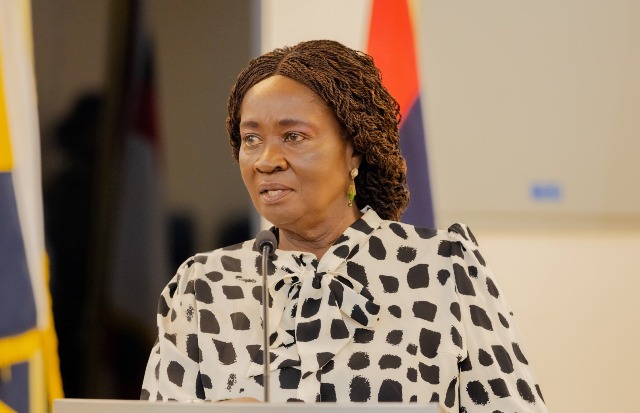Vice President Professor Naana Jane Opoku-Agyemang has emphasized the urgent need for sustainable funding of Ghana’s anti-corruption institutions to protect them from political interference and bolster their independence.
Speaking at a High-Level Conference on Ghana’s Anti-Corruption Architecture held in Accra on June 6, the Vice President stressed that consistent and reliable funding is critical to ensuring that anti-corruption bodies can fulfil their mandates effectively and autonomously.
The conference, organized by the African Union Advisory Board Against Corruption, was themed “Revitalising the Anti-Corruption Architecture in Africa: Ghana’s Accountability Journey.”
Read: Chad halts US visas in revenge for Trump travel ban
Calling for bold and comprehensive reforms, Prof. Opoku-Agyemang stressed the importance of building robust systems that empower anti-corruption institutions to function without external pressures.
“We must ensure that anti-corruption institutions are sustainably financed to reduce undue influence and reinforce their independence,” she stated.
She also expressed support for the establishment of a legal framework to hold both public and private sector officials accountable for unexplained wealth, reinforcing transparency and ethical conduct across all levels of governance.
Reaffirming the Mahama-led administration’s dedication to the fight against corruption, the Vice President announced plans to present a revised Conduct of Public Officers Bill to Parliament. The proposed legislation aims to establish a strong ethical code for presidential appointees and is part of broader efforts to review the 1992 Constitution to better address current governance challenges.
“The revised bill will incorporate views from civil society organisations, anti-corruption agencies, the media, the international community, and other stakeholders to ensure its relevance and resilience,” she said.
Prof. Opoku-Agyemang underscored that corruption is not an unavoidable reality, but a deliberate deviation from the public good. “It is a choice—of personal gain over national interest, of short-term benefit over long-term development,” she noted.
She called for collective commitment to renew the fight against corruption by revitalising institutions, strengthening laws, empowering people, and collaborating across borders to build a prosperous and peaceful Africa—rooted in integrity, transparency, and accountability.


